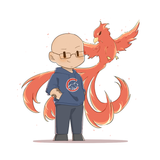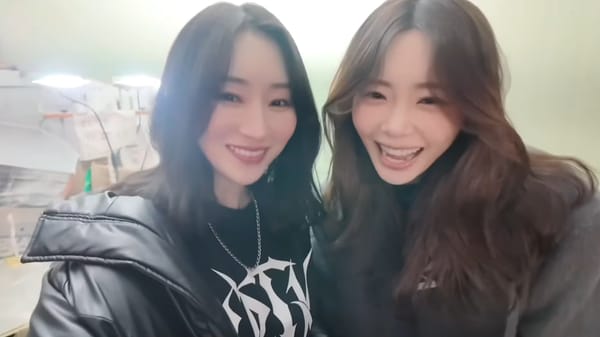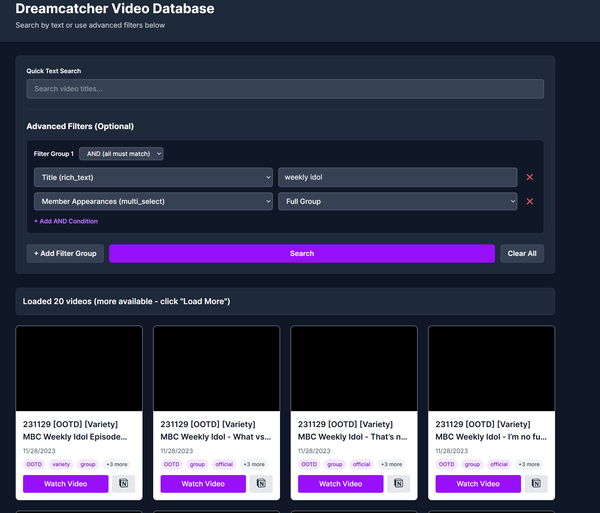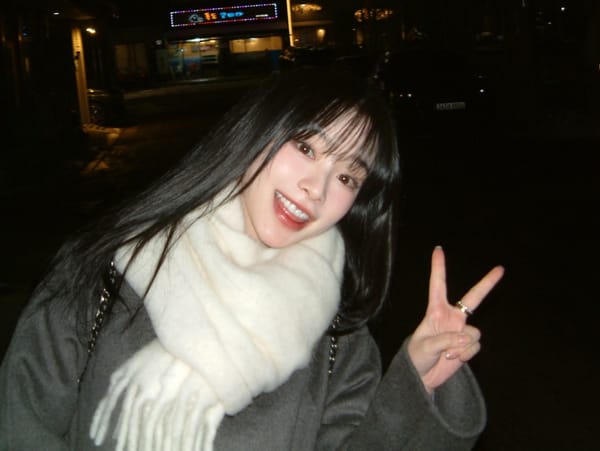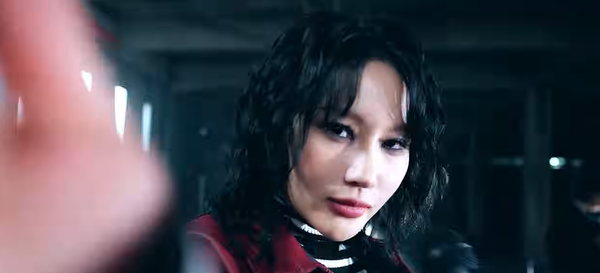Purple Kiss Goodbye, Or The Hard Mode Standard Of The K-Pop Industry's Non-Big 4
Purple Kiss is the latest in a bunch of small to mid-tier company groups that have had to call it quits, but the standard of success might be unrealistically high for those outside the big 4 of K-Pop.
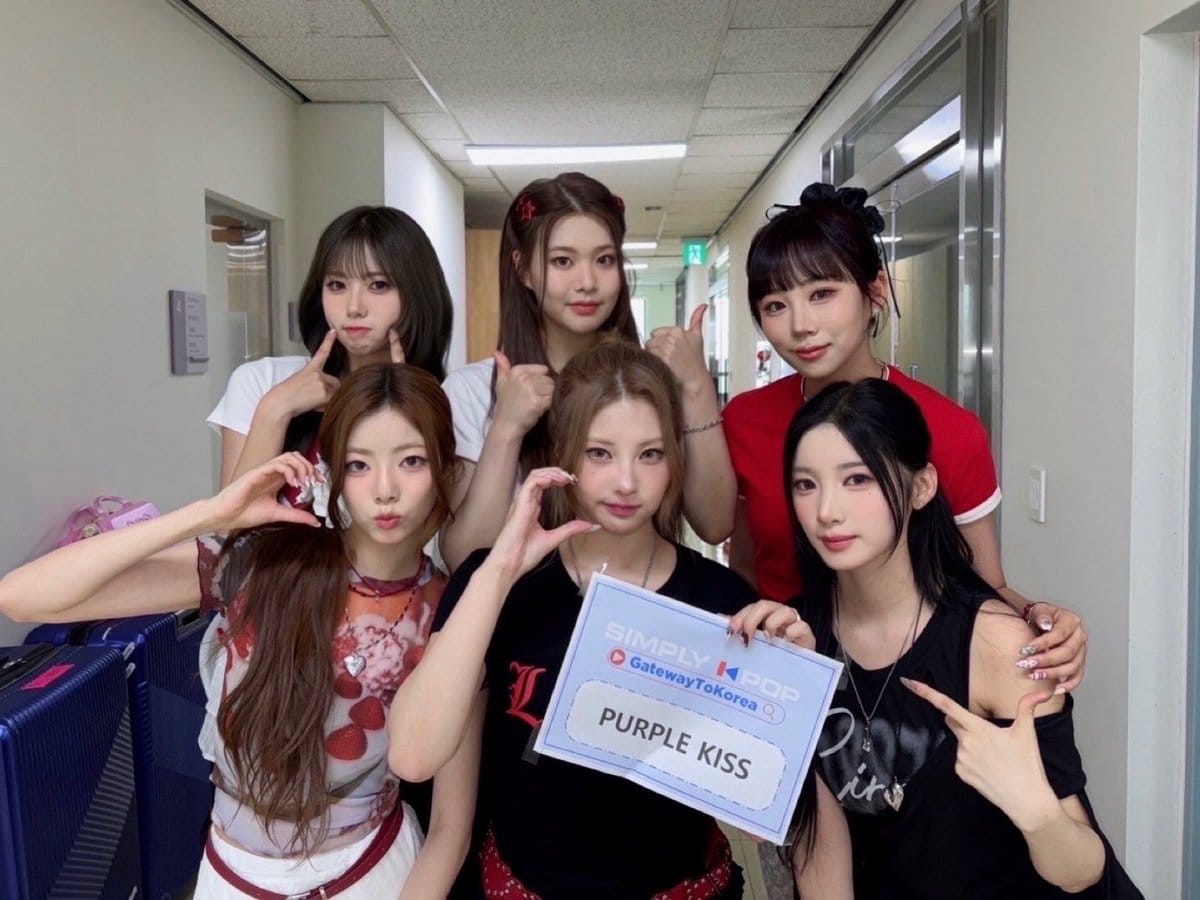
For as long as I can remember, K-Pop has been seen by me as a highly volatile, competitive industry. Tons of groups debut every year in K-Pop, moreso than ever due to how popular it's become worldwide, and because of that, there's a crapton of competition for limited pairs of eyes from fans.
Yet I've always felt that for acts that don't debut from the "big 4" largest and most well-resourced companies (currently JYPE, YG, SM, and HYBE), the standard for success or even sustainability is set much higher. Big 4 acts start further off from the starting line due to company clout, opportunities, and finances, increasing the likelihood of exposure and publicity from the jump, while non-big 4 companies have to work a lot harder for those same opportunities.
Before those big 4 group fans come rushing at me with torches and pitchforks, I want to say up front that I accept and understand this to be the reality of the K-Pop industry, and that the privilege afforded to those groups due to company association does not mean the groups or acts aren't talented in their own right. But I do also think that a non big-4 companies have a higher hill to climb with the margin of error much thinner. It's like setting the game difficulty up to Hard or Extra Hard or Insanity or whatever "not normal" would be, and that's unfortunate, because there's a lot of acts out there that have lots to offer, often outside of the normal industry's wheelhouse of generally agreed-upon concepts and music style.
And it's getting tougher to find them.
Hello, we are RBW. First of all, we would like to express our deep gratitude to Florrie for always showing generous love for Purple KISS. We would like to express our official position on the group activities and future plans.#PURPLE_KISS pic.twitter.com/76EoCIQjbF
— Louᵕ̈ (@purki_p) August 4, 2025
RBW's Purple Kiss is the latest casualty of a number of non big-4 groups, especially girl groups, that have had to stop activities as a group. Purple Kiss will join groups like Weeekly, Cherry Bullet, Rocket Punch and more that have in the last year or so been unable to continue together. The reasons and factors vary, but one thing unites these ill-fated groups together - the fact that the degree of difficulty to maintain and build on attention in the industry was incredibly, perhaps unrealistically, high - even if a group was doing something wildly different from the norm.
I remember when I first noticed Purple Kiss. It was the heart of the COVID-19 pandemic, and in between Dreamcatcher comebacks I was seeking some new music to listen to. Already familiar with RBW due to the fact that my 2nd favorite group, MAMAMOO, hailed from there, I happened upon one of the pre-debut songs from Purple Kiss - "My Heart Skip a Beat", with a dark set, fierce visuals, a rock-backed sound, and creative use of a red chain. To me, this was awesome, a group unafraid to go against the norm with a similar rock sound to Dreamcatcher that I loved, and their debut track, "Ponzona", just made the decision to keep an eye on them even more worthwhile. It was creepy, witchy, bold - and it stood out to me.
In the next two years, Purple Kiss settled into its own unapologetically weird niche in K-Pop, and I loved every minute of it. The mood was creepy, surreal, with a wink towards old cheesy horror and music that was experimental but not so much that it became too out there for me, and the charm was undeniable. Whether it was Swan or Goeun's vocals or Yuki's smooth rapping or Dosie and Ireh's dance moves or Chaein's growing song credits, the group seemed to be on its way to establishing it's own place in the industry.
But then, something odd happened - in late 2023, the group departed from their witchy roots and pivoted towards a fun late summer song in "7 Heaven" that, while enjoyable, didn't seem quite so Purple Kiss-y, a trend that would continue into the next release with "BBB". I would still support the group, but the change in concept and style seemed a bit jarring, and though "On My Bike" in 2024 brought back some of that old school bold Purple Kiss mood, the damage might have been done.
I've seen lots of Purple Kiss fans speculate about what happened in 2022 - 2023, from RBW not properly promoting a group doing something unique in K-Pop to the concept change that would lose them core fans who enjoyed the strange and weird vibes of their early years. But I would speculate that it was a combination of a variety of factors. The 2022 explosion of big 4 company debuts - LE SSERAFIM, NewJeans, NMIXX, along with the meteoric rise of non-big 4 company group Starhip's IVE. The exit from the pandemic that saw fans return to more traditional enjoyment of K-Pop tours, concerts, and music shows. The increased perception that you needed to stand out but also appeal to as wide of an audience as possible. All of these, unified under a theme of having to be more than perfect as a non-big 4 company group, may have contributed to Purple Kiss pivoting so severely as they did. And though Main Rapper Yuki's appearance and subsequent victories in Queendom Puzzle brought some level of publicity to Purple Kiss, it felt like the group never recovered despite solid touring numbers.
I'm under no illusions to change the mentality of casual listeners or those that exclusively follow the big 4 - K-Pop is, after all, a capitalistic industry with all the trappings and dog-eat-dog competition that goes with it. It's pretty tough to compete when the bar is set so much higher than a big 4 company group that can afford to have an "off comeback" and still come back strong. But I do think, instead of appealing a little too idealistically to someone's sense of justice for checking out non-big 4 groups, that it's better to appeal to practicality and the desire for diversity in one's hobby. I've heard of "oversaturation" in the industry, but it's only oversaturated if you are trying to keep up with almost every group at once. And I've ironically heard about everything sounding the same especially as it relates to current generation groups.
Both these issues have an easy solution - flattening the difficulty curve by choosing only a small number of acts, and being more diverse and open with your K-Pop palate make the industry overall better. Not only are you flattening the difficulty curve of non big-4 groups to succeed, but iron sharpens iron - the success or at minimum the sustainability of a few non-traditional big-4 groups - groups like H1-KEY, xlov, KARD, and more that are doing or trying something different than the norm - pushes big 4 company groups to not be complacent and innovate a bit more. It's a win all around - and a way to avoid more goodbyes like Purple Kiss's from happening as often as they have been.
